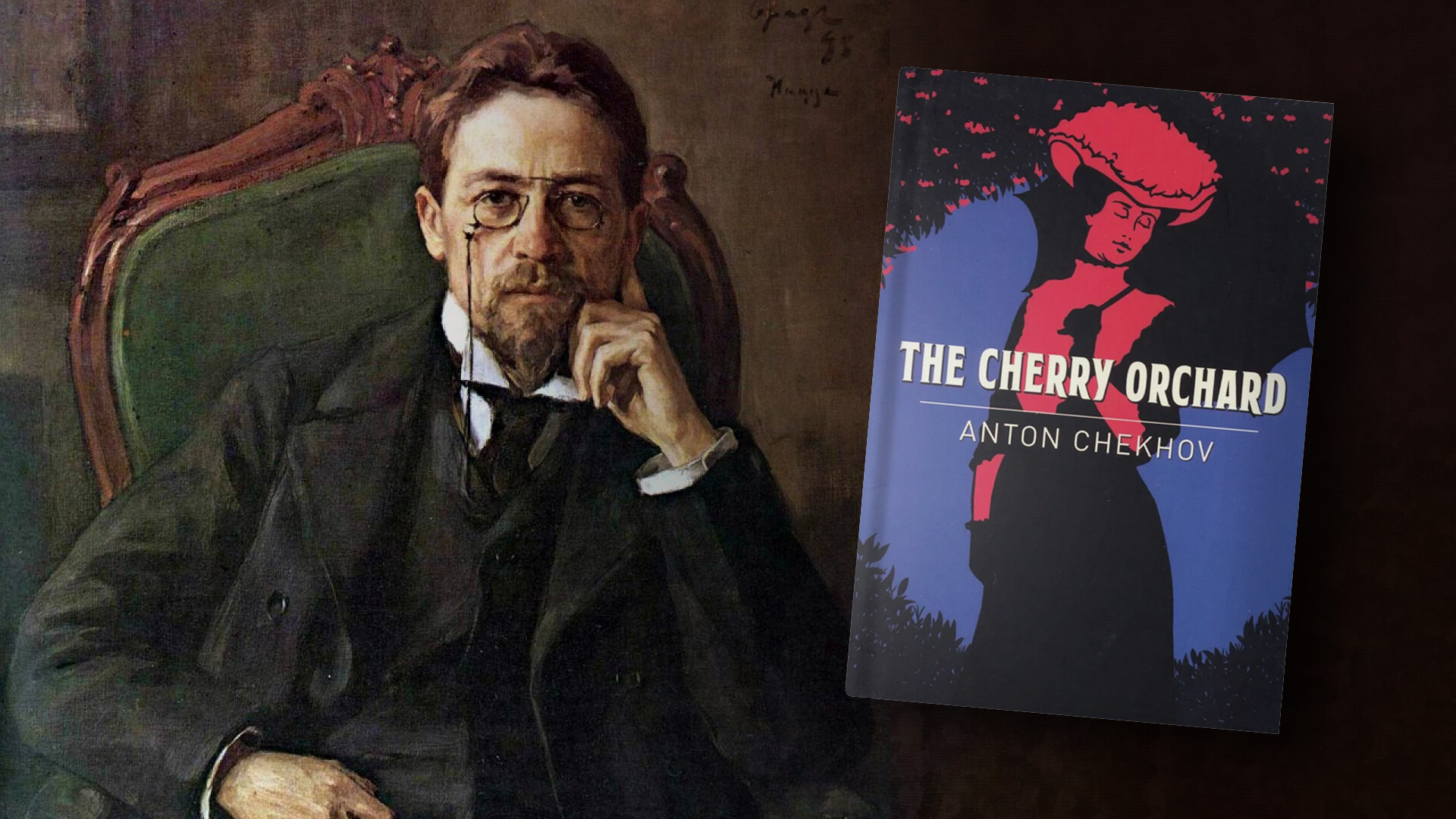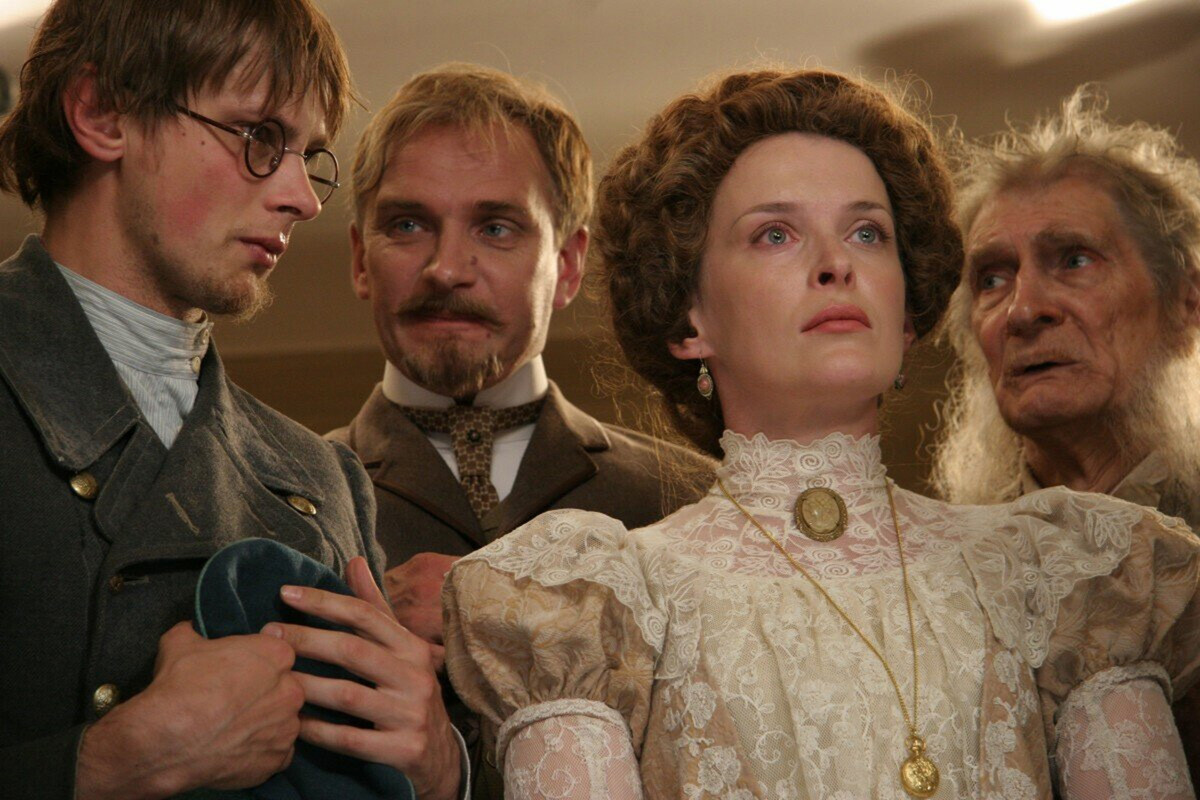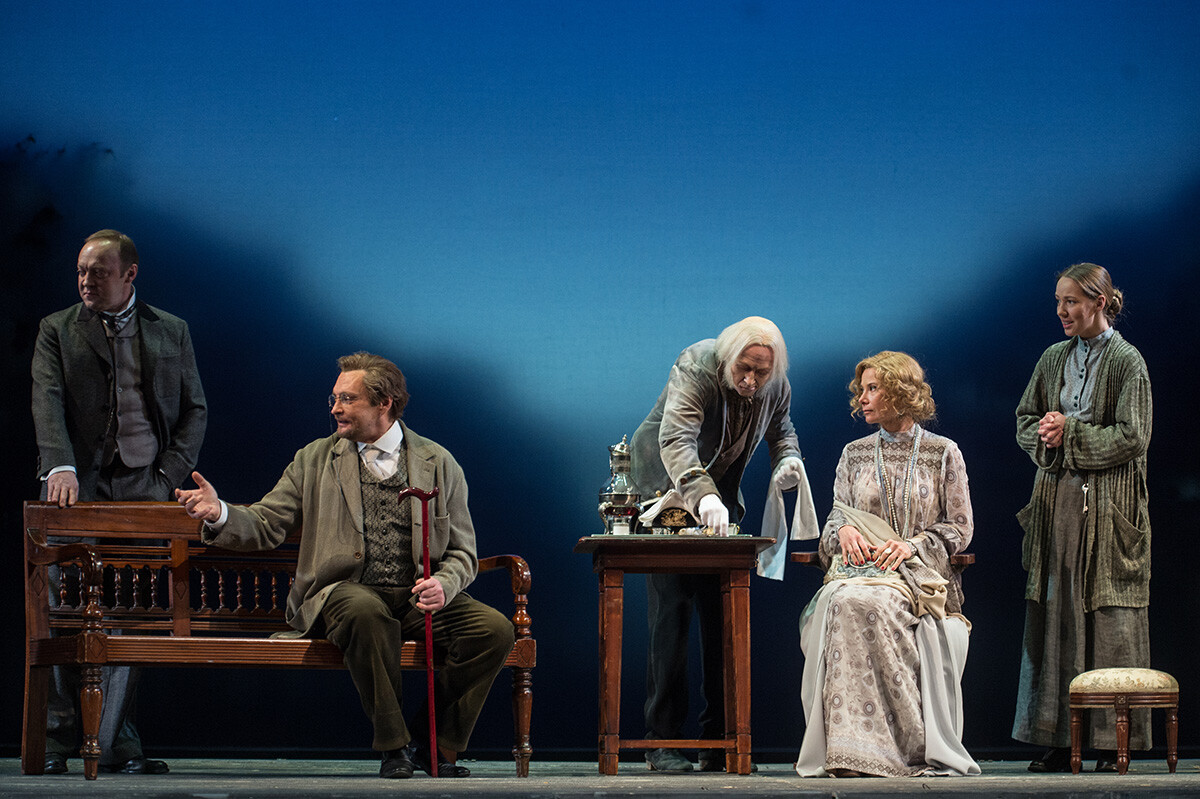Anton Chekhov’s ‘The Cherry Orchard’: A short summary

Ranevskaya is a noble woman who has been living in France for several years with her lover. Spending all her money, she eventually goes bankrupt. So, she returns to Russia with her 17-year-old daughter.
Her huge estate was mortgaged to the bank, but she has spent the loan and has not paid the interest. So, the bank puts the estate, including the family cherry orchard, up for auction.
Ranevskaya is in despair. Her brother, Mr. Gayev, tries to help her and suggests buying her estate. But, he doesn’t have enough money for that.
 A still from 'The Orchard' movie
A still from 'The Orchard' movie
A family friend named Lopakhin visits Ranevskaya. He is a son of a former serf and now a wealthy merchant and a man of progressive views. Lopakhin suggests Ranevskaya cut down the huge cherry orchard and to divide the land into plots, in order to rent them out separately and make money from it.
Being an absent-minded dreamer, Ranevskaya refuses the plan. She tells Lopakhin that this cherry orchard is her family relic, that all her ancestors and she herself and her kids grew up in it and that she just can’t see her life without this orchard.
When the day of the auction comes, surprisingly for everybody, Lopakhin buys the estate with the cherry orchard. Ranevskaya returns to Paris to spend the money that her mother-in-law gave her daughter.
The play ends with the sounds of axes chopping cherry trees.
What’s behind the play?
Chekhov is probably the only Russian writer who doesn’t like drama. Unlike Tolstoy and Dostoyevsky, he describes things in calm tones. But, the dramatic matter of his writing is read between the lines.
Actually, in this incredibly popular play, he speaks out about the destruction of the old noble way of life. And this was written in 1903! Fourteen years before the Bolshevik Revolution, which Chekhov didn’t live to see.
He shows all the noble people as dreamers who have lost all connection with real life. While a former serf’s son is not only a rich and successful man, but also a realist. He talks about things that no one wants to hear. And, eventually, he wins.
 A scene from 'The Cherry Orchard' performance directed by Andrei Konchalovsky in the Mossovet Theater. Yulia Vysotskaya (in the white dress) as Ranevskaya
A scene from 'The Cherry Orchard' performance directed by Andrei Konchalovsky in the Mossovet Theater. Yulia Vysotskaya (in the white dress) as Ranevskaya
The new life and progress triumphs over the cherry orchard that doesn’t bring any money, only melancholic memories.
The sound of axes chopping wood is actually a very bright symbol of how old life is being destroyed. How the noblemen are redundant in this new life. And how progress triumphs.
The play was first staged in 1904 by Stanislavsky and Nemirovich-Danchenko at the Moscow Art Theater and the performance was deemed a great success.


